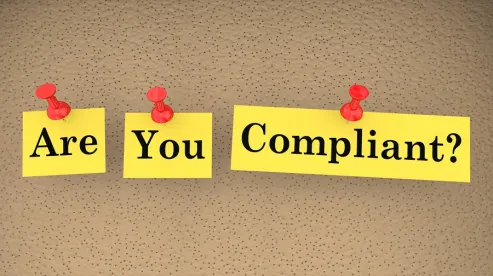In the recent case of Cash Generator Limited v Fortune and others [2018] EWHC 674 (Ch), the Court determined that non-compliance with the deemed consent procedure for nominating liquidators did not invalidate their appointment. The case provides a useful summary on the relatively new provisions governing the deemed consent procedure and welcome relief to Insolvency Practitioners (“IPs”) that a failure to fully comply with such provisions will not necessarily invalidate their appointment.
Brief facts and arguments
Three companies (which were franchisees of the applicant) (the “Companies”) entered Creditors Voluntary Liquidation. Pursuant to the franchise agreements in place, should a franchise cease to carry on business, or a meeting be convened for a voluntary winding up, the applicant could terminate the agreements and require the Companies to give up possession of their premises and transfer their assets to the applicant. Six days before their liquidation the Companies assigned the leases to their business premises and the Liquidators sold the assets of the Companies two days later.
The applicant applied for the reversal of the nominations of the joint liquidators (the “Liquidators”) of three companies (the “Companies”) and/or the Liquidators’ removal from office and the appointment of others in their place.
The basis for the application was that the deemed consent procedure had not been carried out as the notices required to be sent to all creditors were not sent to the applicant, employees or the landlords. The applicant also requested that the Liquidators be replaced because investigations were required into the assignment of the leases and the sale of the assets and the Liquidators were either conflicted, otherwise too closely involved or did not wish to carry out the investigations.
Court considerations
The Court fully considered the relevant statutory provisions relating to the deemed consent procedure and noted that whilst there is a binding statutory obligation on directors to deliver to the creditors a notice seeking their decision on the nomination of a liquidator, “the consequence of non-compliance is the commission of a criminal offence. There is no reference to invalidity.” The Court also determined that assuming the applicant was a creditor who may vote, there was no doubt that the directors had not given notice to all creditors whether that also included employees and/or landlords.
Having concluded that it was imperative that the notices to be sent to the creditors and that the directors had failed to do so, ICC Judge Jones then considered in detail the purposes behind the relevant statutory provisions to determine that non-compliance did not result in the Liquidators’ nomination by the creditors being invalid. In reaching this conclusion the Judge concluded that:-
- The purpose of the provisions was to ensure all creditors who can vote are involved in the process;
- That the deemed consent procedure was introduced to encourage creditor participation;
- That there is always going to be the prospect of one or more creditors not being given notice;
- It was not intended that the creditors who did vote should have their decision nullified should the directors fail to give notice to all other creditors; and
- That the alternative would be to leave the majority of appointments in Creditors Voluntary Liquidations open to uncertainty, which is not desirable.
Further, it was noted that the applicant had alternative remedies available to them, such as requisitioning a meeting of creditors or making an application for the removal of the liquidators with cause.
In respect of the further submissions for removal of the Liquidators due to their potential conflict of interests the Judge reiterated the following, well established points:-
- The existence of a conflict will not necessarily lead to removal;
- The Court should consider, but may not be persuaded by, the views and wishes of the majority of creditors;
- It should not be easy to remove an office holder simply because conduct has fallen short of the ideal; and
- It is relevant to bear in mind that removal will have an impact upon professional standing and reputation.
The Judge’s review of the report prepared by the Liquidators detailing the work carried out by them lead him to the conclusion that they would carry out appropriate investigations. Further, (amongst other matters) it was observed that the Liquidators had received expert valuation advice in respect of the sale and considered it from a commercial perspective.
Ultimately ICC Judge Jones concluded that no cause had been established to remove the Liquidators. It was also mentioned that even if a conflict existed removal would not have been ordered but an alternate route would have been pursued (if possible) to resolve the conflict.
Comment
Whilst IPs may breathe a sigh of relief in the purposive approach adopted by ICC Judge Jones, it should be borne in mind that this case deals with the situation where a creditor decision process had been implemented but had not been fully complied with. The same approach would not necessarily adopted by the Court in a situation where such procedure is not carried out or where the wrong process is used. As a result, IPs should continue to be cautious in their approach to this relatively new area of law.
The case also serves to reinforce the current law regarding conflicts of interest in IP appointments and the reluctance by the Courts to remove IPs from office unless entirely appropriate. The Court’s emphasis on alternate routes to removal being explored should give anyone seeking to challenge the appointment of an IP cause to consider more viable alternatives, such as a joint appointment, as a method of resolving any issues they may have.
Ollie Ward-Jones contributed to this piece.



 />i
/>i

